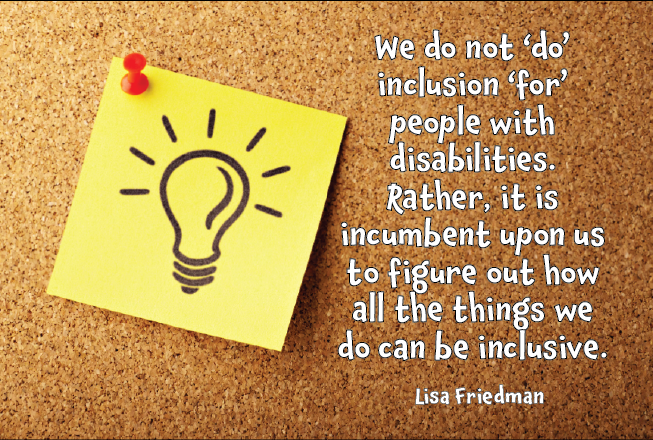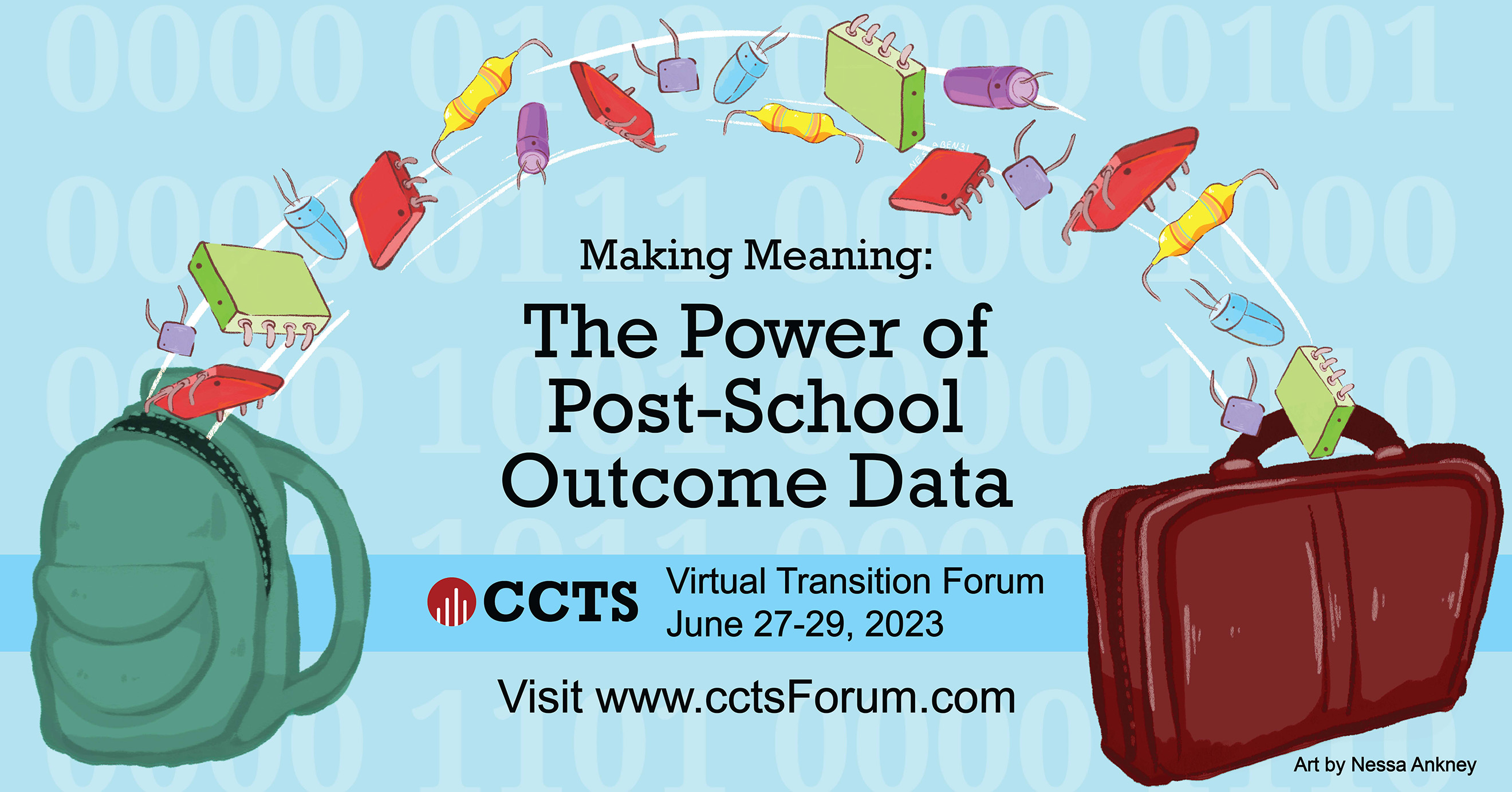As the final year of the Inclusionary Practices Projects ends, we’d like to celebrate the work of the past four years and renew our commitment to increasing inclusionary practices for young people with disabilities. We hope that our work continues to provide you with ideas, materials, and inspiration for implementing inclusionary practices in your schools and classrooms.

Inclusion, CTE, and Student Retention
IPP Review
Since the launch of the Inclusionary Practices Project (IPP) in 2019, CCTS has focused on strengthening partnerships between Special Education (SE) and Career Technical Education (CTE). The goals of both SE and CTE are to prepare students for life after high school–specifically in postsecondary education and training, employment, and adult living skills. By working together, sharing ideas and resources, and providing inclusive, accessible classrooms and courses, SE and CTE partnerships serve all students, and particularly those with disabilities.
In the first two years of the IPP, CCTS developed and hosted virtual trainings and workshops. SE and CTE staff participated alongside adult agency partners. From this work we designed and launched Partnerships for Inclusion: SE and CTE, a free online course. (This course is available for clock hours on the e-Learning for Educators site.) It features school leaders throughout the state who provide a deeper understanding of their work to include students with disabilities in CTE courses and aligning their transition plans with High School and Beyond Plans.
We are excited about all the progress made towards inclusion in Washington state. We also recognize there is still more work necessary to provide students with disabilities opportunities to be fully engaged and prepared for life after high school.
Inclusionary Practices and Student Retention
The most recent Washington state post-school outcome data indicates that among former special education students who graduated high school, 76.47% attended a postsecondary education/training program or were employed within their first year of leaving high school. For former students who left high school by dropping out, only 55.37% of youth met the reporting requirements to be considered engaged in education/training or employment (CCTS, 2023).
CTE programs and classes can offer protective factors for dropping out, such as relevant and engaging curricula, opportunities to interact with teachers and mentors in areas of interest, and to connect academics to real-world settings.
Dr. Cynthia Gale, in her dissertation Factors Affecting On-Time Graduation for Students with Disabilities in Washington State, analyzed qualitative data to identify factors leading students with disabilities to drop out of high school. The responses to the Post-School Survey question, “Would you be willing to tell us why you dropped out of high school?” were coded and sorted into eight themes. Of those eight themes, over half (51.3%) were in two areas: Disengagement and Academic Environment.
Responses from students and their caregivers in these areas included:
- Not engaged, classes seemed irrelevant.
- Was no longer excited about being in school.
- Very bored, not learning anything useful, wanted to start working.
- Unmotivated. Got behind and felt like they couldn't get caught up.
- Didn’t feel the connection … felt less than because of being special ed. Felt like the only one who needed special help.
- Felt that they did not belong. Did not like being pulled out for special education services.
- Embarrassed about being in Special Education Classes, due to their age and was embarrassed to ask question in front of peers.
Dr. Gale’s recommendations, based on her extensive literature review and robust analysis of 2,344 responses, strike at the heart of inclusionary practices. She writes:
“As educational leaders continue to explore ways to improve graduation rates and engagement of all students, including those with disabilities, three major recommendations emerge:
- Increase or maintain social emotional and mentoring supports in schools,
- address environmental culture to be more inclusive to all types of students, and
- consider programmatic revisions in schools that allow different types of learners to engage in more varied content and programs.” (Gale, 2022)
Inclusionary practices can provide relevant curricula, a sense of belonging, and lead to increased opportunities for students with disabilities. This provides our students with opportunities and skills to make choices and find success after graduating high school.
Dr. Gale will present her research findings at CCTS’s Virtual Transition Forum keynote address on June 27, 2023. Details and registration are available at www.cctsForum.com.
--
References
Center for Change in Transition Services, Seattle University (January 2023). Indicator B14 Post-School Outcome Report: Washington state, 2020-21 leaver year [PDF]. Retrieved from https://www.seattleu.edu/ccts/post-school-outcomes/reports/.
Gale, C. M. (2022). Factors affecting on-time graduation for students with disabilities in Washington state (16) [Educational and Organizational Learning and Leadership Dissertations, Seattle University]. ScholarWorks.
Inclusionary Best Practices Colloquium
June 14, 2023
The Center for Strengthening the Teaching Profession (CSTP) in partnership with OSPI is hosting an Inclusionary Best Practices Colloquium for Washington educators.
This one-time event is happening in the Sea-Tac area and will feature presentations from each of the IPP Cadre organizations: Association of Educational Service Districts, Association of Washington School Principals, Center for Change in Transition Services, Family Engagement Collaborative, University of Washington Demonstration Sites, Washington Association of School Administrators, and the Washington Education Association.
There will also be hosted discussion around practices and resources that can be used by schools and districts to continue to grow and sustain inclusion and inclusionary practices.
Register for the Inclusionary Best Practices Colloquium
Making Meaning: The Power of Post-School Outcome Data
CCTS Virtual Transition Forum | June 27-29, 2023

Post-school outcome (PSO) data provide a picture of life after high school for former special education students in relation to postsecondary education and employment.
Join CCTS for a series of live and prerecorded presentations that highlight how PSO data can be used to inform practice around transition services (including instruction, development of transition plans, activities, and agency collaboration).
